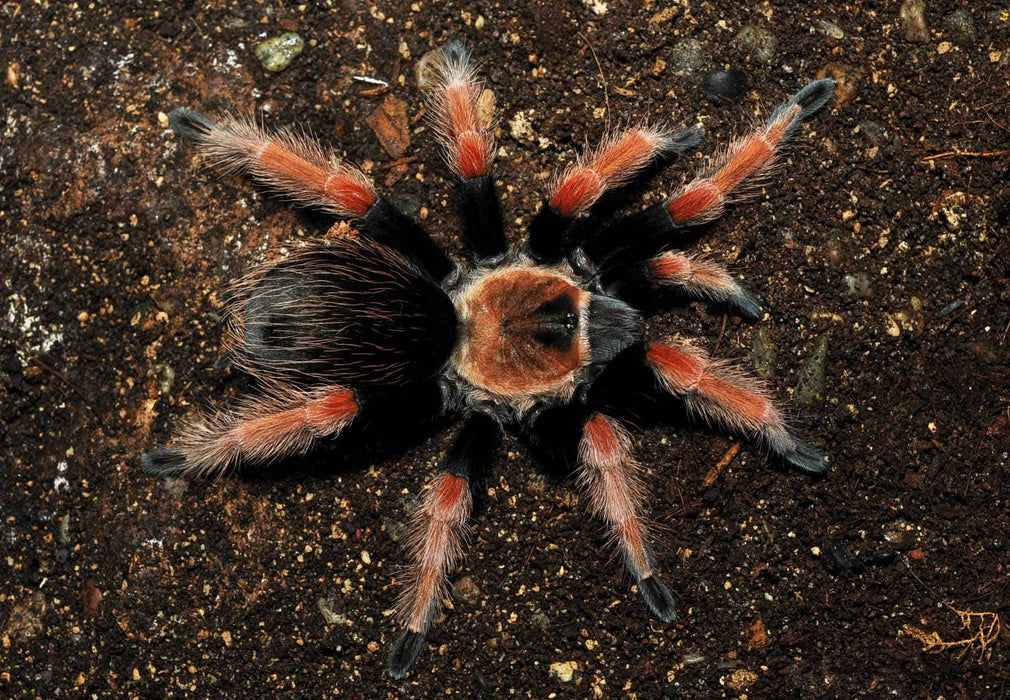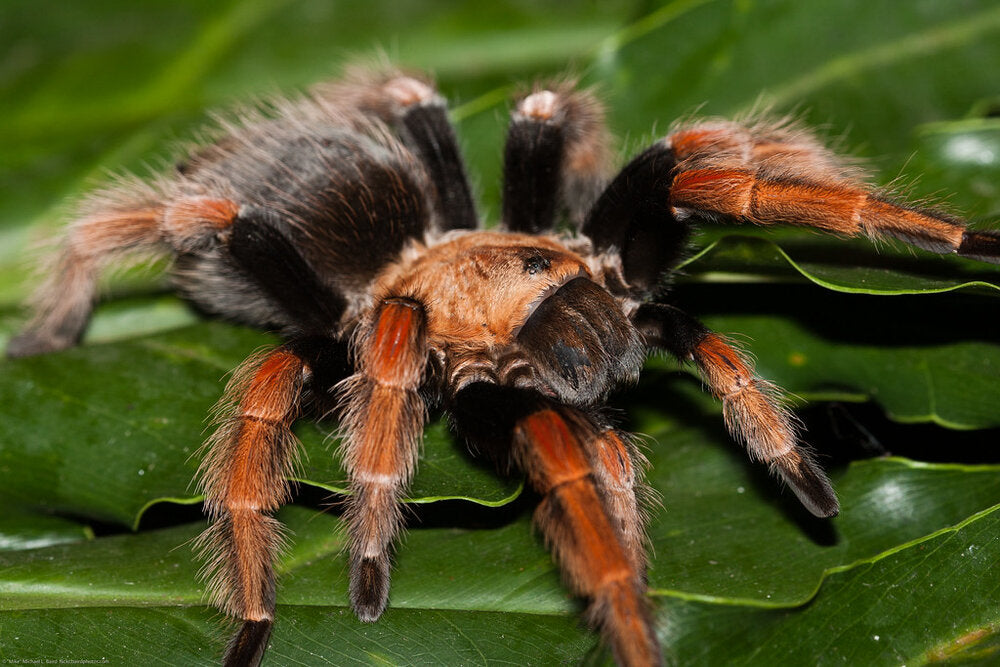
Mexican Fireleg Tarantula | Brachypelma boehmei (Med)
Live Animals Are Click and Collect Only
Please note that we do not ship live animals. You can order online and collect in store.
The Mexican Fireleg Tarantula is a terrestrial, opportunistic burrower. She can move very quickly, and the rusticating hair can be exceptionally irritating, but she’s not prone to bite. This spider would prefer to run and hide than bite, and her venom is considered mild.
She’s a terrestrial spider and an opportunistic burrower, so she’s most comfortable with plenty of places to hide. They’re very slow growers, growing only around one inch per year during their spiderling phase; this most likely has to do with their incredibly long lifespan, giving them ample time to grow into their full size.
As some of the most long-living spiders, this species might be a good choice for you if you have a tendency to get attached to your tarantulas. Skittish and nervous, the Mexican Fireleg Tarantula makes up for her behavior with the striking colors she displays.
Temperature and Humidity:
The Mexican Fireleg Tarantula lives in savanna and shrub land biomes. These are warm climates, so it’s better to house your tarantula in temperatures of 70°F to 75°F and humidity at around 70% to 80%.
Watering:
Mexican Fireleg Tarantulas don’t create large webs, so keeping them hydrated with a water dish and filling it as soon as it gets empty is fairly simple. However, remember to use gloves when changing the plate to avoid irritation from its urticating hairs.
When your spider is young and too small to drink from a water bowl you can drip some water down the side of the enclosure.
Diet:
Mexican Fireleg Tarantulas are happy eating crickets and roaches but will eat small geckos if given a chance. As spiderlings, you should feed them twice a week with either flightless fruit flies or small crickets (pre-killed).
Juveniles can have three to four medium crickets or a medium roach once every week.
Adults can spend more time without eating, so four to five crickets or a large cockroach every two or three weeks will be enough for them.

















